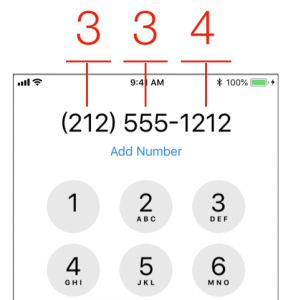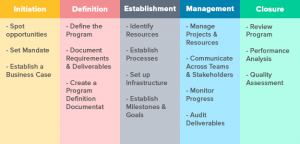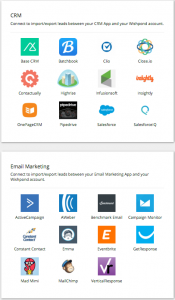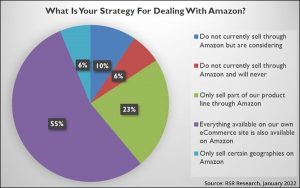As executive recruiters for marketing and digital fields, we frequently encounter the subject of executive coaches. Sometimes candidates will ask if we recommend one, or we’ll work with talent that already has some kind of life/career coach, or someone in our network will share their experience with one. We’ve seen a lot of success stories among marketing professionals–and some duds.
The reality is that an executive career coach can be an immensely valuable partner. But not all “experts” who call themselves executive coaches are created equal. And not all situations call for a career coach–even a very good one.
If you’re a marketer climbing the ladder, at some point you might find yourself in a position where an executive coach is just what you need to take your career to the next level. Here’s what you need to know before making such an important decision.
Why Marketers Can Find Them So Valuable
Every business discipline has professionals that could benefit from some kind of career coaching or leadership development. But today’s marketers frequently find themselves in a situation where this assistance and support could be especially useful.
“There’s a lot of change that’s happening,” says author, speaker, and executive coach Henna Inam. As a former CMO and someone who has helped develop marketing leaders at Fortune 500 companies, she’s seen firsthand the challenges and obstacles today’s senior marketing professionals face.
“There’s a lot of innovation; in terms of online and social media engagement, industry changes, new competitors from adjacent industries, how the consumer acts and goes to market. There’s a lot happening in data analytics, and new ways of thinking about customer experience.”
You think about the role of CMOs, they’re really having to collaborate and set the vision for their company.
And it’s not just the nature of marketing itself that’s changing. It’s what’s increasingly being expected of the marketing department and its leaders by the rest of the business.
“You think about the role of CMOs, they’re really having to collaborate and set the vision for their company. All of that requires agility to change. We’re getting increasingly global, and working across time zones, virtual teams, and cultural boundaries requires new leadership skills. We need to increasingly influence without authority. Marketing leaders have to create strong, trusted relationships with vendors and peers and global counterparts inside and outside of the organization. From a leadership perspective, there’s a huge opportunity for leaders to improve self awareness, agility, to discover their strengths and what can derail them, and learn how to influence across the organization.”
New technology, tools, and strategies for marketing are emerging on a constant basis. Even the best, most experienced marketers can fall behind without realizing it. A good executive coach will help individuals manage their own personal transformation without getting overwhelmed.
The Best Times for Marketers to Consider an Executive Coach

An executive coach can be an excellent partner to help grow your career or navigate a major life change. But don’t go searching for an executive coaching organizations to treat as executive job search firms to find a new job or because you’re underperforming at work.
Avoid hiring a career coach just because “you feel like it’s time” or are seeing others do it. Instead, go in with a particular problem or goal in mind. Perhaps you’re in a mental rut and are ready for a boost out, or are relocating for a job but unprepared for what that could mean for your lifestyle, family, and finances.
I spoke with Liz Ward, CMO for United Way of Greater Atlanta, who recently made use of a career coach when stepping into the job.
“I hired an executive coach because prior to taking on the CMO role at United Way, I had been consulting for 16 years, and so had been out of the corporate world for a long time. So I wanted some help making the adjustment. I needed to relearn how to be a good manager and lead a department, to reorient myself on organizational politics. I hadn’t had direct reports in a really long time.”
I needed to relearn how to be a good manager and lead a department, to reorient myself on organizational politics.
Ward’s situation is a perfect example of when an executive coach can be useful. She had all of the functional qualifications for the job. But stepping in as the head of a department at a major nonprofit requires a huge change in mindset and priorities after more than a decade in consulting and advising roles.
Ward also suggested some other scenarios where looking up a career coach would be valuable:
“If you look around, and you don’t have mentors you can talk to; if you don’t have someone above you to provide guidance and support; and/or you really need to work in depth on a particular obstacle that’s hindering your career opportunities.”
Inam added a few more:
“If you are aspiring to go one or two levels above where you are currently, consider a career coach. If you find yourself stuck, or hit a wall you can’t overcome, or got feedback at work on something you can’t handle on your own. If you feel demotivated/disengaged with your current job and need help getting some motivation going.”
How to Find the Right One: Recommendations from Executive Recruiters for Marketing

Should you choose to work with an executive coach, you’ll be faced with the challenge of finding a good one.
That’s not easy. Anyone can call themselves an executive or career coach–there’s no universally recognized certification or degree or association. And in our experience, this is a field that attracts many people who couldn’t cut as executives themselves–those who can’t do, teach.
A quick Google search turns up no shortage of individuals and companies promising everything from lightning-fast career growth to personal life fulfillment and everything in between. How can you tell who’s legit, and who’s selling snake oil?
The best advice we can give is to leverage your personal and professional network. Ask around among people you trust for advice and referrals.
If you’re facing promotion or new responsibilities within your current company, you may also be able to leverage your employer to find the support you need. Talk to your senior management and HR teams about leadership development programs–odds are good your company has brought in executive coaches in the past and can find one for you that has produced results in the past.
And of course, if you’re fortunate enough to be working with experienced executive recruiters for marketing, you can always ask them for advice and assistance finding a good coach for your situation.
Business & Finance Articles on Business 2 Community(81)







